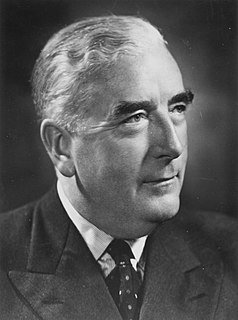A Quote by John Owen
A man may be carried on in a constant course of mortification all his days; and yet perhaps never enjoy a good day of peace and consolation.
Related Quotes
A foreign minister, I will maintain it, can never be a good man of business if he is not an agreeable man of pleasure too. Half his business is done by the help of his pleasures: his views are carried on, and perhaps best, and most unsuspectedly, at balls, suppers, assemblies, and parties of pleasure; by intrigues with women, and connections insensibly formed with men, at those unguarded hours of amusement.
These principles laid down as in variable rules: that one must pay a card sharper, but need not pay a tailor; that one must never tell a lie to a man, but one may to a woman; that one must never cheat any one, but one may a husband; that one must never pardon an insult, but one may give one and so on. These principles were possibly not reasonable and not good, but they were of unfailing certainty, and so long as he adhered to them, Vronsky felt that his heart was at peace and he could hold his head up.
You are told a lot about your education, but some beautiful, sacred memory, preserved since childhood, is perhaps the best education of all. If a man carries many such memories into life with him, he is saved for the rest of his days. And even if only one good memory is left in our hearts, it may also be the instrument of our salvation one day.
Someone once inquired of a Far Eastern Zen master, who had a great serenity and peace about him no matter what pressures he faced, "How do you maintain that serenity and peace?" He replied, "I never leave my place of meditation." He meditated early in the morning and for the rest of the day, he carried the peace of those moments with him in his mind and heart.
A man may be a tough, concentrated, successful moneymaker and never contribute to his country anything more than a horrible example. A manager may be tough and practical, squeezing out, while the going is good, the last ounce of profit and dividend, and may leave behind him an exhausted industry and a legacy of industrial hatred. A tough manager may never look outside his own factory walls or be conscious of his partnership in a wider world. I often wonder what strange cud such men sit chewing when their working days are over, and the accumulating riches of the mind have eluded them.
Nothing can alter the character of God. In the course of a human life, tastes and outlook and temper may change radically: a kind, equable man may turn bitter and crotchety: a man of good-will may grow cynical and callous. But nothing of this sort happens to the Creator. He never becomes less truthful, or merciful, or just, or good, than He used to be.
Military tactics are like unto water; for water in its natural course runs away from high places and hastens downwards... Water shapes its course according to the nature of the ground over which it flows; the soldier works out his victory in relation to the foe whom he is facing. Therefore, just as water retains no constant shape, so in warfare there are no constant conditions. He who can modify his tactics in relation to his opponent and thereby succeed in winning, may be called a heaven-born captain.
The discovery of the good taste of bad taste can be very liberating. The man who insists on high and serious pleasures is depriving himself of pleasure; he continually restricts what he can enjoy; in the constant exercise of his good taste he will eventually price himself out of the market, so to speak. Here Camp taste supervenes upon good taste as a daring and witty hedonism. It makes the man of good taste cheerful, where before he ran the risk of being chronically frustrated. It is good for the digestion.





































